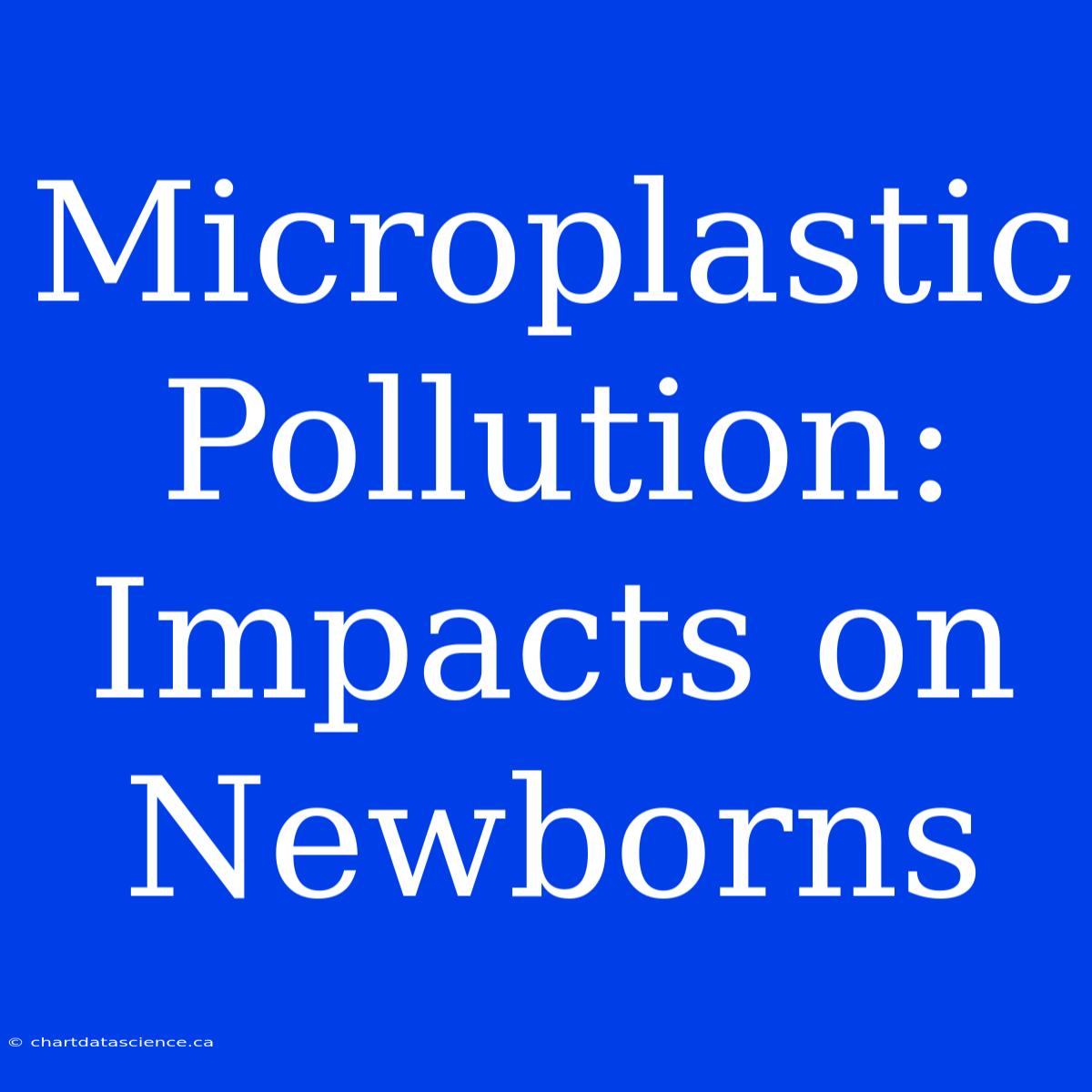Microplastics: A Tiny Threat to Our Smallest
Microplastics. You've likely heard the word, but do you really understand the extent of its impact? It's not just about ocean pollution, it's about our health, and it's impacting the most vulnerable among us: newborns.
A Tiny Threat, a Huge Problem
Microplastics are tiny plastic particles, less than 5 millimeters in size, that break down from larger plastic items. They're virtually everywhere: in the air we breathe, the food we eat, and even the water we drink. And they’re particularly alarming when it comes to newborns.
Why are newborns so vulnerable? They're still developing, and their organs and systems are especially sensitive to toxins. Exposure to microplastics can have a range of impacts on their health, from developmental delays to immune system issues.
The Microplastic Pathway to Newborns
Microplastics can reach newborns in several ways:
- Placenta: Studies have shown that microplastics can cross the placenta, exposing the fetus to these tiny plastic particles.
- Breast milk: Microplastics have also been found in breast milk, meaning that breastfeeding can also expose babies to these particles.
- Formula: Even formula-fed babies aren’t safe, as microplastics have been found in baby formula.
- Baby products: Toys, bottles, and other baby products can also be a source of microplastics.
The Impacts: What We Know and What We Don't
While research on the impacts of microplastics on newborns is still relatively new, some studies have revealed concerning findings:
- Developmental issues: Microplastics have been linked to developmental delays in animal studies, raising concerns about potential impacts on brain development in humans.
- Immune system disruption: Microplastics may interfere with the immune system, making newborns more susceptible to infections.
- Hormonal disruption: Some types of plastic contain chemicals that can disrupt hormones, potentially impacting growth and development.
Moving Forward: What Can We Do?
The reality of microplastic pollution is daunting, but there are things we can do to reduce our exposure, especially for newborns:
- Choose plastic-free products: Opt for glass, stainless steel, or silicone baby bottles, toys, and other products whenever possible.
- Wash reusable items carefully: Thoroughly wash bottles, toys, and other reusable items before use to help remove any microplastics.
- Be mindful of food packaging: Choose food products with minimal plastic packaging.
- Support sustainable practices: Reduce your overall plastic consumption by choosing reusable bags, containers, and other products.
The fight against microplastics is a global one. By taking action, we can help protect our most vulnerable citizens and ensure a healthier future for all.
This is just the beginning. We need more research to understand the full impact of microplastics on newborns and develop effective solutions. But one thing is clear: We need to act now to protect our children from this tiny, but mighty, threat.

